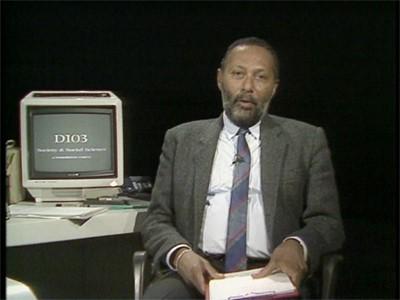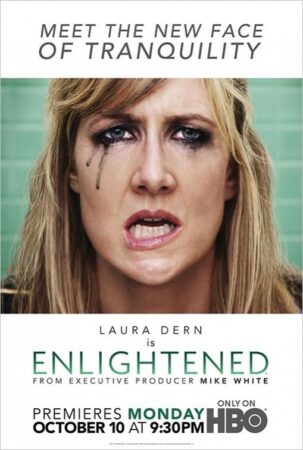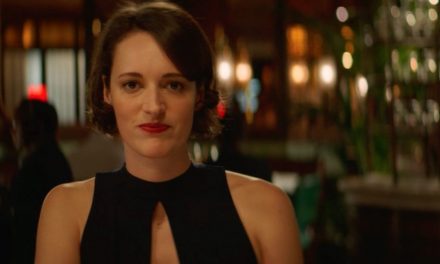Some of you may have seen the announcement of an issue of Open Philosophy (2022; 5:1) which is devoted to a ‘Topical issue: Ethics and Politics of TV Series’ or, as the editorial explains, ‘Taking TV Series Seriously’. The editorial, which is somewhat breath-taking, can be found here. It is striking that, with a couple of exceptions, the bibliographies of the editorial and the articles that follow contain virtually no material on television fiction nor on television as a medium.
I should say that I have never studied philosophy nor have I engaged with the Film-Philosophy approach which has had an impact in Film Studies. The evidence from the editorial of this issue on what philosophy might have to say about (recent) TV Series confirms my long-held view that interdisciplinary (and transnational) work requires humility and patience which are not qualities which are much valued in universities these days.
But this did make me wonder what research which already exists in Television Studies might help these philosophers who have noticed that TV series are examples of popular culture which
provide common reference points, which populate ordinary conversations and political debates. They become shared representations of moral reasoning and feelings. They arouse ethical reflection in their viewers – in the spirit of philosophy.
Is it worthwhile for us to argue that research coming out of Television Studies has, since the beginning, demonstrated that ‘Studying TV shows means paying attention to popular culture as moral [ie ethical, political and educational] resource’? Or to point out that in choosing a certain kind of TV series they run the risk of underestimating the capacious and unruly popular medium they have turned their attention to?
It was in this spirit that I drew up a very short list of bibliographic resources which might demonstrate how Television Studies scholars have been working on these issues for many years. This list inevitably bears the marks of my own interests in British TV and I decided also to exclude CST examples, given the home of this blog. The list is not intended to be remotely representative of all the work which might demonstrate how television serves as a resource for its audiences. But it might be a start.
- Stuart Hall ‘Television as a Medium and Its Relation to Culture’, 1975 in an unpublished paper, reprinted in Writings on Media History of the Present, Charlotte Brunsdon (ed), Duke UP, 2021. Hall’s encoding/decoding essay features in a couple of bibliographies in the Open Philosophy issue so this is a reminder that he wrote more than one article and, more importantly, of his insistence that aesthetics, technology and politics are socially shaped and intricately bound up.
- Richard Dyer, Light Entertainment, 1973, BFI Television Monograph No 2. One of the most despised TV genres is analysed to show how entertainment’s ‘aesthetics of escape’ creates a utopian world in which feelings of energy, sincerity and joy are valued and experienced. Published so early in the discipline’s history, Dyer’s work acted as a warning against thoughtless dismissal of any of television’s popular forms.
- Charlotte Brunsdon ‘”Crossroads” Notes on Soap Opera’, 1981, Screen, 22:4. Here because one of its key insights, all those years ago, was that the soap operas, in very particular ways, asked their audiences to reflect on moral questions about characters and actions. A year later, Dorothy Hobson in “Crossroads”: Drama of a Soap Opera, Methuen, carefully showed how research into production and audiences could provide valuable insights into such activity.
- Helen Piper ‘”How long since you were last alive?” Fitz and Tennison ten years on’, 2009, Screen, 50:2. Nuanced, thoughtful, reflective, this is an article about two British TV series which concludes with a comment about the relationship between different critical methods: ‘Perhaps, after all, it is up to the critic to imagine and articulate the dimensions of complex emotions, including possibilities not experienced by her/himself, so that scholars of audiences might have new questions to ask and prevailing wisdoms to challenge’.
- Lez Cooke, Style in British Television Drama, 2013, Palgrave. A book which takes the matter of television aesthetics head on, using British examples from 1954 onwards, and engaging in detailed visual analysis. It links back to Raymond Williams’ work on television drama and serves as a useful reminder of the importance of examining the organisation of space and place in the many rooms of television fiction.
- Kristyn Gorton ‘Enlightened melodrama: excess, care and resistance in contemporary television’, 2019, Screen, Volume 60, Issue 4. An example of the work on television drama currently being developed with regard to television and the ethics of care. Here a discussion of Enlightened (HBO, 2011-13) draws on an understanding of melodrama to show how and why the performance of care can actually lead to action.
There is nothing definitive about this list and I can already see that Screen is massively over-represented considering that its emphasis is largely on cinema! But it is intended to show that canon(s) can be useful if we want to establish a dialogue with other disciplines and to demonstrate that our work is there to be built on across a range of disciplines
The editorial in Open Philosophy concludes with the comment that ‘All contributions brought together in this issue aim to grasp the political, societal, cultural, and aesthetic significances of TV series’. In the light of this wide aim, it would be great to have some more suggestions about what further reading might be added to their reading lists.
Christine Geraghty is Honorary Professorial Fellow at University of Glasgow. Her publications on television include a contribution to the 1981 BFI monograph on Coronation Street; Women and Soap Opera (Polity, 1991) and My Beautiful Laundrette (IB Tauris, 2004). Her BFI TV Classic on Bleak House was published in 2012 and she has continued to make a major contribution to Adaptation Studies. Most recently, she has published an essay on BAME casting in the 2010s in the journal, Adaptation and she is currently working on Small Axe in relation to its status as film and television. She is Book Reviews editor for Critical Studies in Television.








I was struck by the focus on ideas of shared cultural reference points and wanted to suggest two pieces (a book and a chapter) that conduct audience research that uncovers precisely how television is used to come to a shared understanding about life’s and culture’s complexities.
Gillespie, M. (1995) Television, ethnicity, and cultural change. London: Routledge (Comedia).
Hobson, D. (1989). Soap operas at work. In E. Seiter, H. Borchers, G. Kreutzner, & E. Warth (Eds.), Remote control: Television, audiences, and cultural power. New York , NY : Routledge, pp. 150-167.
I would also point to Karen Lury (2005) Interpreting Television (Bloomsbury Academic) for its excellent exploration of how television comes to mean through different means and how it sits embedded in everyday structures of life.
And sorry to blow my own trumpet, but this article looks at television’s ‘contemplative images’ as a means to understand how television gives space to audience to experience empathy.
Weissmann, E. (2011) “Conventionally Beautiful: Contemplative Images in the Personal Reflective Narratives of Who Do You Think You Are?, the Monastery and the Convent,” European Journal of Cultural Studies, 14(2), pp. 195–211.
Thanks for this really timely and important intervention, Christine. I know your reflections here are shared by many of us in the field. I would like to suggest one (of many possible) additions to the bibliography you’ve started us off with here, and that is Glen Creeber’s important article ‘Taking our personal lives seriously’: intimacy, continuity and memory in the television drama serial’ in
Media, Culture & Society 23 (4), 439-455, 2001. This piece argued for exactly the significance of television dramas that is being, naively, and seemingly without much due diligence, called for here.
Thanks for this post, Christine Geraghty, and to everyone for adding important television studies work to the list. To add some of my favourites;
Jonathan Gray (2010) ‘Show Sold Separately: Promos, Spoilers, and Other Media Paratexts’ (New York and London: New York University Press) for complex analyses of the context and texture in and around television texts.
Eva Novrup Redvall (2013) ‘Writing and Producing Television Drama in Denmark: From The Kingdom to The Killing’ (London: Palgrave) for in-depth insight into (successful) Danish television drama.
Catherine Johnson (2019) ‘Online TV’ (London and New York: Routledge) for ground-breaking framework and definitions of what television is (and is not) in an online world.
Thanks so much for starting this, Christine – indeed a very important intervention!
Reading your invitation to share key TV studies texts for inclusion in this reading list, Horace Newcomb and Paul Hirsch’s “Television as a Cultural Forum” came to mind, that is
Newcomb, Horace M., and Paul M. Hirsch. “Television as a cultural forum: Implications for research.” Quarterly Review of Film & Video 8, no. 3 (1983).
I found this early contribution to Television Studies a tremendously helpful conceptual approach when considering TV’s impact beyond the level of the individual viewer.
More bibliographical notes from the beleaguered margins.
Buonanno, Milly. 2008. The Age of Television: Experiences and theories, translated by Jennifer Radice. Bristol: Intellect.
Not only is she a brilliant philosopher of TV , but also she takes the long view in the way she reclaims key terms like flow, the phenomenology of viewer behaviours, to explore the medium anew.
Silverstone, Roger. 1994. Television and Everyday Life. London and New York: Routledge
This is one of those key texts which contemplate the meaning of TV as shaping the very fabric of our everyday lives, how television mediates the social and cultural world in which we inhabit. Philosophers should like this one, as it dissects the emotional and cognitive, spatial, temporal and political significance of television.
Thank you for a truly wonderful piece and some fabulous references! If I may also contribute a bibliographic entry of enormous weight, I would include Ien Ang’s incomporable Watching Dallas (1982) Routledge. A seriously exceptional piece of television and audience studies.
Thanks for this, Christine.
You’ve turned a matter of frustration into an opportunity for us to draw together the substantial existing achievements of our discipline.
I’d like to add the following to the list:
McNicholas Smith, K. 2020. Lesbians on Television: New Queer Visibility & the Lesbian Normal. London: Intellect. Exploring an important topic, this monograph stresses the nature of popular television as a social, cultural and political space. THIS BOOK IS OPEN ACCESS VIA INTELLECT’S WEBSITE.
Warner, K. J. 2015. The Cultural Politics of Colorblind TV Casting. New York: Routledge. This book makes a crucial intervention in understanding the recent state-of-play in inclusion strategies in US TV casting, underlining the substantial further thought and effort required in this area – in both industry and scholarship. As you know, I feel very strongly that we need to get moving on this in a UK context also. Thankfully, you are one of the colleagues leading on those efforts in your own work.
Hello Christine,
I am writing a letter to the Guardian about a course you taught with Ruth Baumgarten at Goldsmiths in 1984 that I attended: Introduction to the cinema. At the end of the year, I wrote an essay on the camerawork of the film Carmen by Carlos Saura who had just died which you marked as excellent. The film so impressed me and it was thanks to you and Ruth that almost 40 years later, I am thumbing through my essay to hopefully and positively inform on the work of that marvellous Director.